In a previous blog exactly a year ago on the Huffington Post, I shared the philosophy of “simple living and high thinking” as presented by the eminent Vedic teacher/scholar A.C Bhaktivedanta Swami Prabhupada. In carrying the timeless wisdom of the bhakti-yoga tradition to the wide world outside of India, Swami Prabhupada was determined to create a profound paradigm shift that would carry our sense of civilization forward by harkening back to our natural foundation. This foundation not only consists of yogic practices designed to help us recover and restore the natural state of our being, as souls devoted to the Divine and all life, but it also consists of an ecologically-sound, agrarian way of life which in many ways is the polar opposite of the urbanized, industrialized, and technologized model of civilization we are deeply conditioned and committed to.
Swami Prabhupada dared to say that the agrarian model of life was not a backwards step. He wanted to us to understand that our reconnection to the simple life of the land was not only the most necessary forward step for our civilization, but also that it was the most necessary forward step on the journey towards our own spiritual self-realization.
Terry Sheldon, one of Swami Prabhupada’s original students, has carried forward this aspect of Swami’s misison with his service creating The Small Farm Training Center (SFTC), part of the New Vrindaban temple and community in the Northern Panhandle of West Virginia. The Small Farm Training Center is the flagship project of the Green Wheeling Initiative (which we have previously blogged about here and here). Terry has been at the cutting-edge of political and spiritual thought throughout his life, from the radical streets of Berkeley in the 1960s to the historic spread of the bhakti-yoga tradition across the Eastern and Western world. Now he shares the conviction and living example that the local food movement, and the paradigm shift towards ecologically-sound agrarian living, is the true and most essential earthly and spiritual revolution of our time.
From the Small Farm Training Center website, Terry writes:
The Small Farm Training Center (SFTC) is a land based educational center and a hands-on working organic farm. Our purpose is to create community — a web of supportive relationships — by making locally grown organic foods readily available and affordable with the use of simple technology.Although I’ve spent 30 plus years farming and gardening in Appalachia, I don’t consider myself a “local.” You might say I’m spoiled. My grandfather’s farm in Northern Michigan, where I was raised, is both flat and fertile. West Virginia hillside farming is daunting. The soils here — like the air, the streams and the people themselves — have been used and abused for 150 years.
The “real” locals, those who can trace their heritage back for two or three generations, love Appalachia. That spark of original mountain culture permeates their very being, Unfortunately, their bodies tell a different story. Morbid obesity and diabetes are the norm. That’s the price you pay when you no longer grow what you eat and eat what you grow. Like most Americans, their industrially grown food is starving them nutritionally while fattening them for the “big round-up” by the pharmaceutical and health insurance industries.
Something is out of balance. The Small Farm Training Center is one of many local organizations challenging this dying paradigm. We farm, we garden, we teach, we encourage, we improvise and most importantly we listen to input. We also call a spade a spade when it comes to identifying the political, economic, cultural and spiritual stumbling blocks to restoring the environment and securing a safe, stable food supply… We nourish both person and place.
For the past month I have been participating in the SFTC apprenticeship program with Terry and the SFTC. The program is a fountain of hands-on knowledge in relation to the ABCs of organic farming, biodiversity, composting, and the fine arts of constant sowing, seeding, and weeding. However there is an extra layer to how Terry approaches the idea of teaching and sharing. For him molding an apprentice means molding a paradigm warrior. He writes:
All privately held corporations are living a lie. They believe we live in a world where capital has the right to grow and that right is higher than the rights of people, If you’re one of those people who passively accept corporate domination of America’s food supply and political life, be forewarned, we don’t. Corporations are no more a part of the natural order than the English monarchy was 200 years ago. They want us to believe that industrial agriculture is the only way to feed the world. That’s a lie. They want us to believe that it is cheaper to destroy the earth than to take care if it in real time. That’s another lie. At the heart of their economic system and theory is the proposal that life is too expensive. We disagree. We choose life and we’re going to tell our own story. We’re looking for paradigm warriors who can expand the conversation and are fluent in the language of inclusion, kinship and possibility.
The Small Farm Training Center apprenticeship program is about:
Learning by doing, and then teaching it to others — that’s how you earn your degree in bio-citizenship. Yoga, vegetarian cooking, and the care of farm animals — especially milk cows — are additional features of our curriculum. We also regularly distribute surplus organic veggies to soup kitchens and local charities. Turn off the boob-tube, shut down your laptop and pick up your hoe.
Being an apprentice here is about developing the courage to literally make the change happen, to be part of the global movement which draws us back to the foundations of natural community and civilization. It is about getting that sacred soil lodged in your fingernails and on your hands like a true badge of honor. It is about understanding the essential art of “no-harm” farming and the real definition of sustainability.
For now, let me take you on a tour of one of the two gardens that make up the Small Farm Training Center. Today we will show you our Teaching Garden, and in our next blog we will check out our eight-acre Garden of Seven Gates. Join me!
The 1/2 organic Teaching Garden provides foodstuffs and flowers for the New Vrindaban community and guests, for the sacred prasadam food offerings to the resident Deities Radha-Vrindaban Chandra, and for the outreach efforts of the Green Wheeling Initiative.
The Teaching Garden stands with feet in both new and old paradigms, honoring and participating in the progressive ecological movement of our time by showing an example of a cow-centered farm. The practical and philosophical aspects of the Garden are based on the principles of Vedic village ecology, from Indian culture, one of history and humanity’s most advanced and ecologically sound systems of agriculture.
All fertilizer in the garden comes from the community’s resident cows and goats, demonstrating that real fertility comes from living in harmony with our fellow living entities. The honoring and protection of our fellow animal community members is a deep and essential spiritual principle which insures karmic harmony and the sustainability and evolution of the soul towards self-realization for everyone involved with the Garden.
The Teaching Garden is an example of small-scale biodiversity, empowering the local community with local food culture. The tillers of the Garden offer workshops and tours which explains the ABCs of organic farming in relation to small-scale backyard gardening, market gardening, or the art of selling and preserving organic produce, and mini-farming, growing a wide array of foods for the local community without capital-extensive, external inputs.
The Garden also has a strict reuse, recycle, and restore ethic in relation to our mechanical assistants. Hence our trusty tractor, which has been in operation since the 1940s.
Tromboncino squash, which is resistant to squash bugs. Take that Monsanto!
Our mint collection includes lemon-mint, chocolate mint (which tastes like a York peppermint pattie), peppermint, and spearmint.
Dinosaur kale, whose dark-green leaves have a delicious nutty texture and remain firm in texture when cooked.
Some of the Garden’s resident sunflowers. Nectar for the eyes and soul.
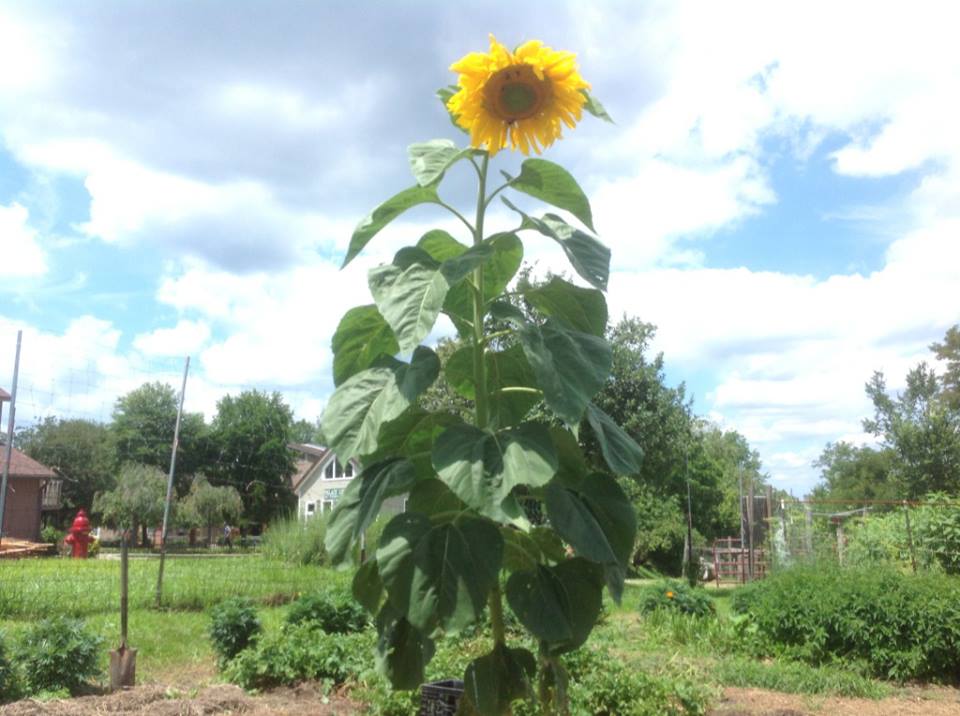
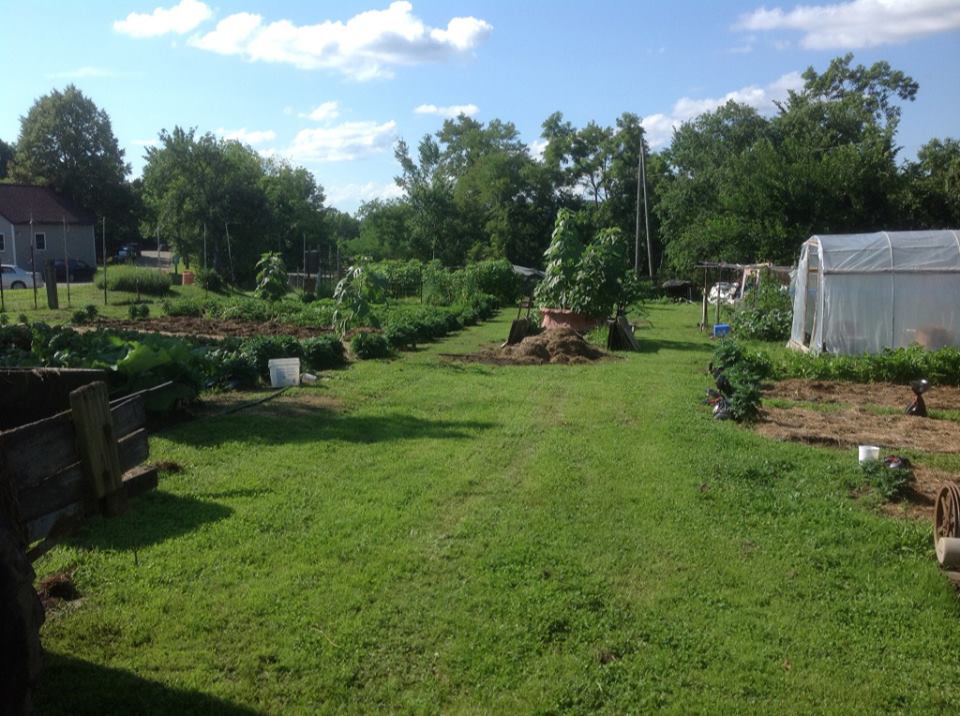
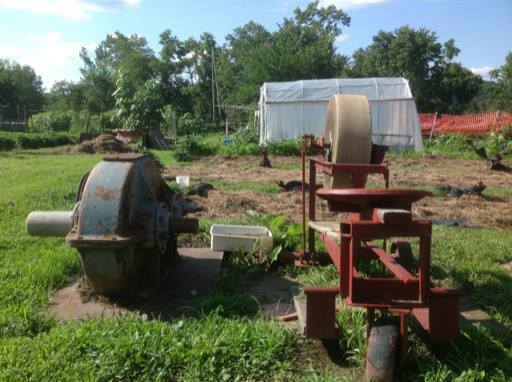
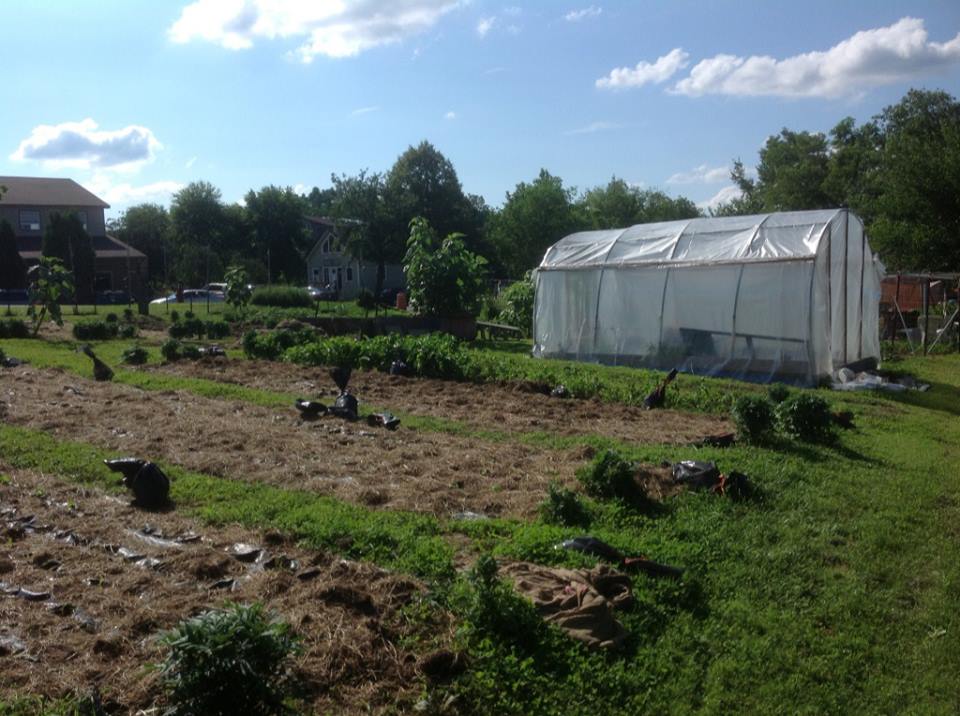
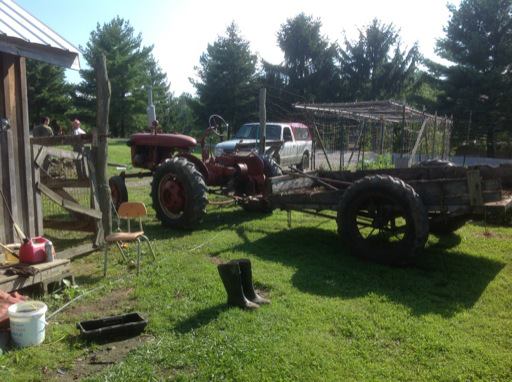
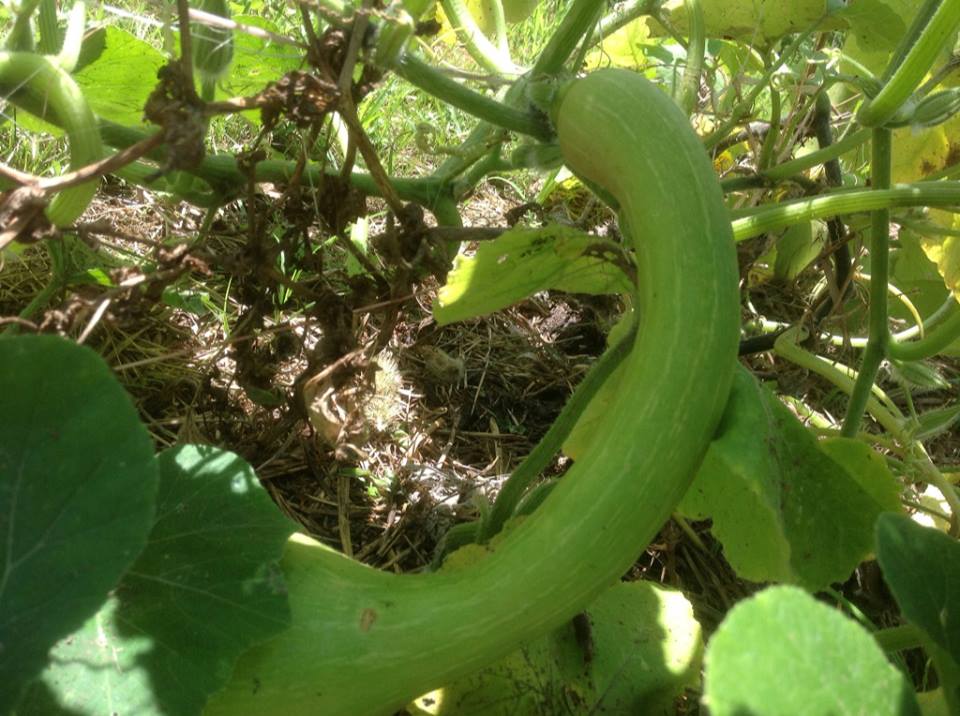
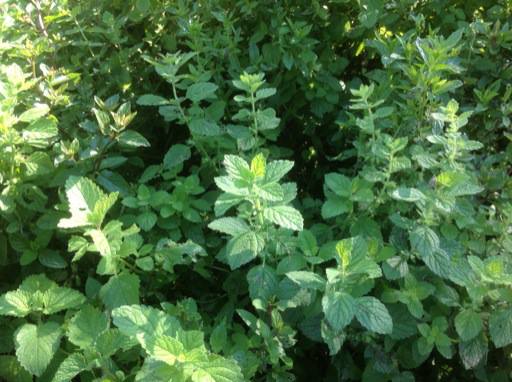
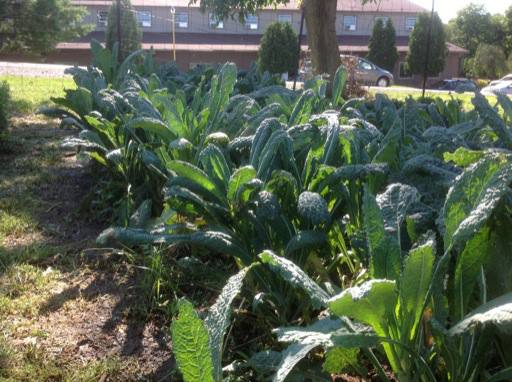
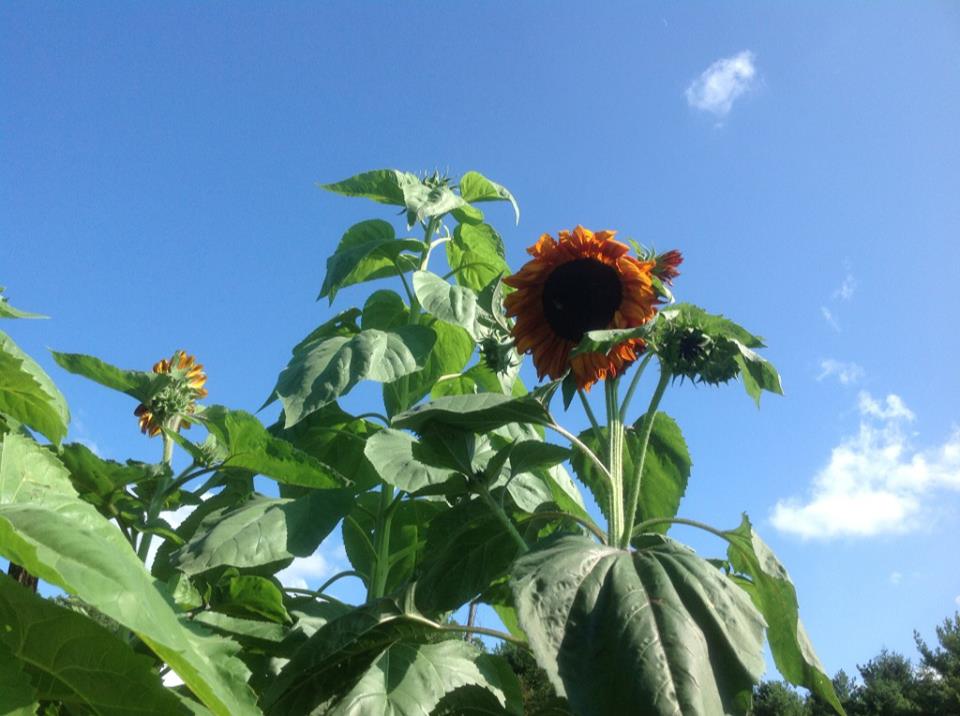
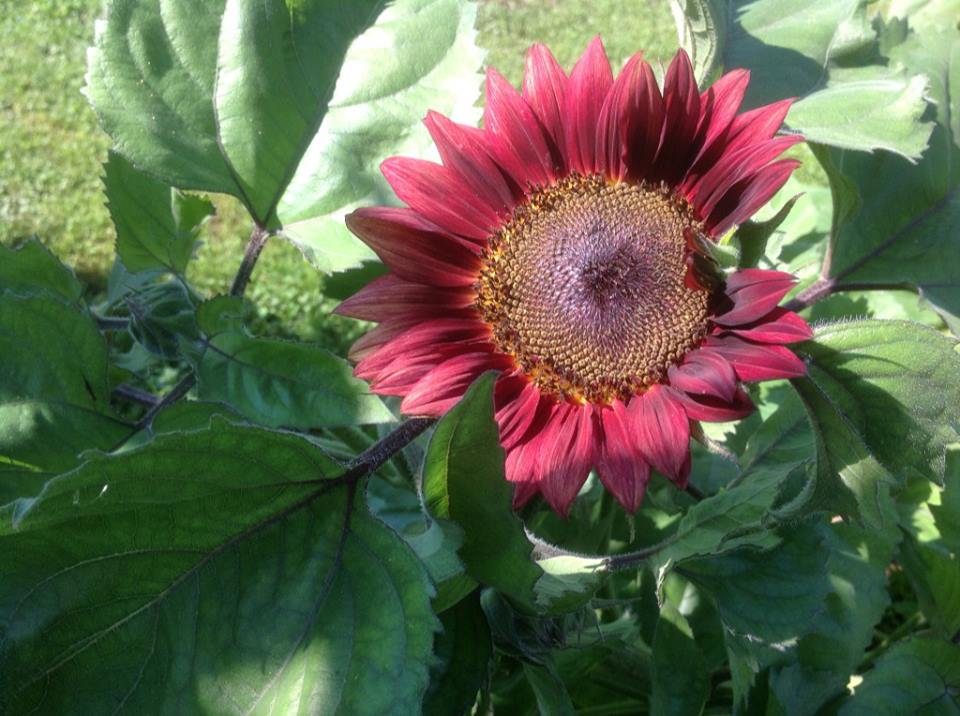
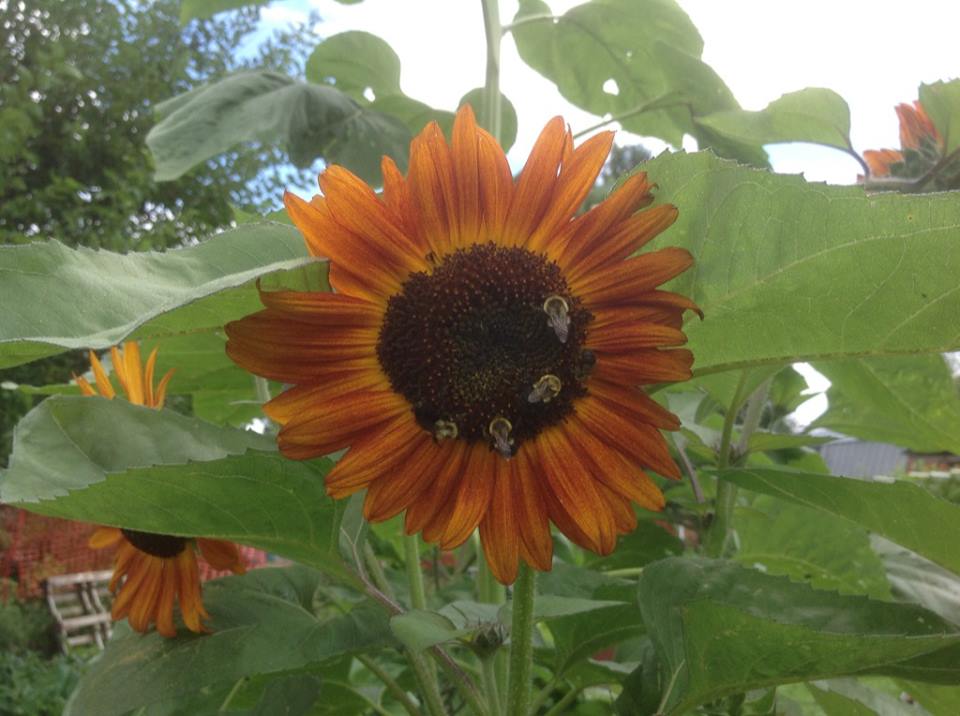
2 thoughts on “The Yoga of Ecology: The Teaching Garden”
Comments are closed.